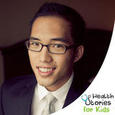Diagnoses of ADHD have been on the rise since 1990. Along with this comes a rise in awareness of the side effects associated with the standard ADHD medications. In addition to this, helpful preventative tips have come to light when it comes to controlling ADHD symptoms.
Traditional ADHD pharmaceutical medications balance neurotransmitters in the brain, which theoretically balances the chemical signals these neurotransmitters make between the brain and body. However, a study published in 2010 found no notable improvement in either behavioral or attention problems in children between the ages of five and fourteen who took medication for ADHD. Along with this, ADHD drugs have been linked to some serious side effects, including mood swings, loss of appetite, heart problems, insomnia, and even suicidal thoughts or actions. Fortunately, there are alternatives out there for those diagnosed with ADHD who would like to avoid potentially harmful drugs.
Many of the alternative methods for controlling ADHD are dietary. Diet may be more linked to ADHD than once thought. Eliminating the use of food coloring and preservatives such as sodium benzoate, Yellow No. 5, 6, and 10 and red No. 40, may help decrease hyperactive behavior in some children. Also believed to be beneficial is the restriction of potential allergens in the diet. Common allergens which may have links to ADHD are milks treated with BHT, eggs, chocolate, and salicylates -such as those found in oranges, grapes, stone fruits like peaches and plums, tomatoes, berries and even chili powder.
In contrast, there are foods and supplements which may help ADHD symptoms tremendously. Passionflower, Ginseng and Ginko Biloba have been shown to help hyperactivity, While Zinc acts to regulate the neurotransmitter dopamine, much like it's chemical counterparts. Magnesium, vitamin b-6 and L-carnitine are all said to be beneficial supplements as well. While supplements may be a safer alternative for some, make sure you are using them under the guidance of a trained healthcare professional or doctor, especially if you are thinking of supplementing a child.
In addition to dietary influences, environmental stress factors may come into play for those with ADHD. Reducing these stress factors through relaxing physical activities like Tai Chi, yoga, or massage can be a highly beneficial experience for anyone, and even more so for those diagnosed with ADHD. A small study published in 2013 detailed significant improvements in multiple areas for boys diagnosed with ADHD who practiced yoga regularly. Participants who regularly practiced yoga were less likely to be anxious, hyperactive,or to have social problems. Teenagers who practiced Tai Chi regularly showed a notable decrease in inappropriate emotions and were less likely to be hyper or anxious. As noted in a 2003 publication of Adolescence , A study showed improvements in mood and classroom behavior in those students who received a 20 minute massage twice a week over the course of a month. Small improvements over time can make a large difference.
Along with these improvements in diet and lifestyle, many are turning to alternative therapies such as Electroencephalographic (EEG) biofeedback. EEG biofeedback is a type of therapeutic treatment which measures brainwaves in order to help train them. for example, a child may be hooked up to a special video game and given a task of "Keep the plane flying in the air". As they begin to be distracted, the transmitters pick up on these brainwaves, making the plane descend as the child becomes unfocused. Over time, the child learns to identify and correct these patterns through the use of these techniques.
There are many alternatives to the chemical medications traditionally used for ADHD. As more studies are done on the effectiveness of these alternative techniques, more and more families are choosing to make the switch from the potentially harmful pharmaceuticals to natural methods such as stress reduction, physical outlets, dietary awareness, and brainwave training. While these alternatives may be right for some, it is important to begin exploring any new techniques under the guidance of your health practitioner.
To learn more about health topics that concern the whole family, please visit www.healthstoriesforkids.com.
Brian values the ability of all ages to learn from the power of stories. His mission is to write about health conditions, educational topics, and life situations in an entertaining way in order to help children understand their own health conditions and daily circumstances. See more at healthstoriesforkids.com
Brian Wu graduated with a Bachelor's Science Degree in Physiology and Neurobiology. Currently, he holds a Ph.D. and is an MD Candidate (KSOM, USC) in integrative biology and disease.

Post new comment
Please Register or Login to post new comment.